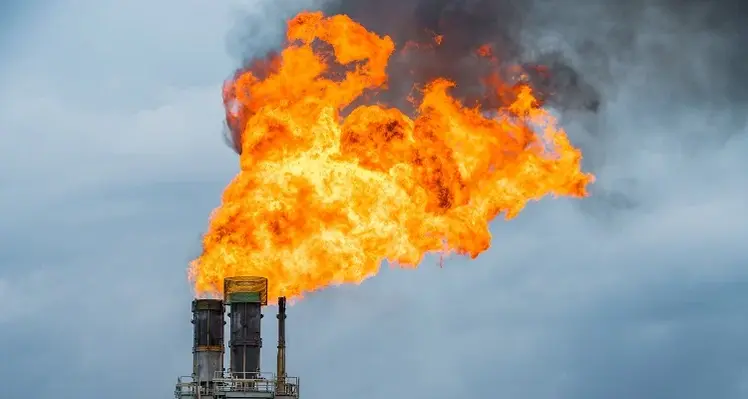A new report from the World Economic Forum finds that US$13.5 trillion in investments will be needed by 2050 to transition to a more sustainable and carbon-neutral future, particularly in the production, energy and transport sectors
The Net-Zero Industry Tracker 2023, published in collaboration with Accenture, takes stock of progress towards net-zero emissions for eight industries – steel, cement, aluminum, ammonia, , oil and gas, aviation, shipping and trucking – which depend on fossil fuels for 90% of their energy demand and pose some of the most technological and capital-intensive decarbonisation challenges.
The report outlines pathways to accelerate the decarbonisation of emission-intensive production, energy and transport industries, with investments in clean power, clean hydrogen and infrastructure for carbon capture, utilization and storage (CCUS) being needed to accelerate industrial decarbonisation across most sectors.
Addressing methane and flaring emissions remains the key priority for the oil and gas industry, but achieving net zero needs increased use of electrification and CCUS across the value chain, the report says.
"To align with net-zero ambitions, the industry aims to achieve the following by 2030: a more than 50% reduction in scope 1 and 2 emissions intensity, a 75% reduction in methane emissions and a 95% reduction in flaring emissions. Achieving these objectives requires deploying methane abatement technologies, eliminating non-emergency flaring, electrifying oil and gas facilities, adopting CCUS in gas processing and decarbonising refinery operations through CCUS and clean hydrogen, where possible. Energy efficiency will also be vital." US$880bn will be required by 2050 to decarbonise the oil and gas sector, which the report says the industry is in a "good position" to fund.
“Decarbonising these industrial and transport sectors, which emit 40% of global greenhouse gas emissions today, is essential to achieving net zero, especially as demand for industrial products and transport services will continue to be strong,” said Roberto Bocca, head of Centre for Energy and Materials, World Economic Forum. “Significant infrastructure investments are required, complemented by policies and stronger incentives so industries can switch to low-emission technologies while ensuring access to affordable and reliable resources critical for economic growth.”
According to the report, the US$13.5 trillion in investments is derived from average clean power generation costs of solar, off-shore and on-shore wind, nuclear and geothermal, electrolyzer costs for clean hydrogen and carbon transport, as well as storage costs.
The majority of the technologies needed to deliver net-zero emissions are expected to reach commercial maturity after 2030, highlighting the need for collaborative approaches to research, develop and scale them.
“It is imperative that action is taken soon to both decarbonise and improve energy efficiency; otherwise, unabated fossil-fuel demand in the key industry sectors, which have grown 8% on average the past three years, will increase very significantly by 2050,” said Bocca. “But industrial leaders can respond through new collaborative ways of working and innovating, for example within industrial clusters and by fostering best practices, sharing infrastructure in important areas like clean hydrogen and CCUS and building demand for lower-emissions products.”
According to the report, carbon pricing, tax subsidies, public procurement and development of strong business cases can support in mobilising necessary investments. However, raising capital for high-risk projects with unproven technologies could be challenging in the current macroeconomic environment. Institutional investors and multilateral banks, therefore, can play an important role by providing access to low-cost capital linked to emissions targets.
“Collaboration between the public and private sectors is critical to a successful energy transition, and technology can be a key enabler in both managing affordable and reliable access to clean energy and addressing the incremental cost of decarbonisation,” said Muqsit Ashraf, who leads Accenture Strategy. “Widespread scaling and adoption of clean power, carbon capture and storage, and energy efficiency technologies across sectors are vital for progress. Additionally, business model innovations can also help stimulate demand and accelerate industrial decarbonisation — achieving net-zero objectives and a resilient energy transition.”
The report acknowledges that recent policy developments can push the industrial net-zero transformation in the right direction. While some advanced economies are enacting large-scale policy measures, emerging economies – which will account for a larger share of future demand for industrial products and transport services – will need help accessing low-emission technologies and solutions.
The report also calls for industrial sectors to focus on the following five areas, and details specific actions for each of the sectors:
• Technology – Prioritise clean power technology across most sectors, commercially scale CCUS in cement, and improve technology to reduce costs for clean hydrogen development.
• Infrastructure – Promote shared infrastructure, such as industrial hubs and clusters.
• Demand – Create a standardised framework for low-emissions products, a simple emissions-intensity calculator and an auditable carbon-footprint assessment process, improving consumer transparency.
• Policy – Align on emissions reduction requirements globally, with policies customised to suit individual country needs and enhance market transparency to increase emission intensity visibility.
• Capital – Improve transparency for low-emissions and low-carbon alternatives, strengthen demand signals and reduce capital expenditures through shared infrastructure development.










